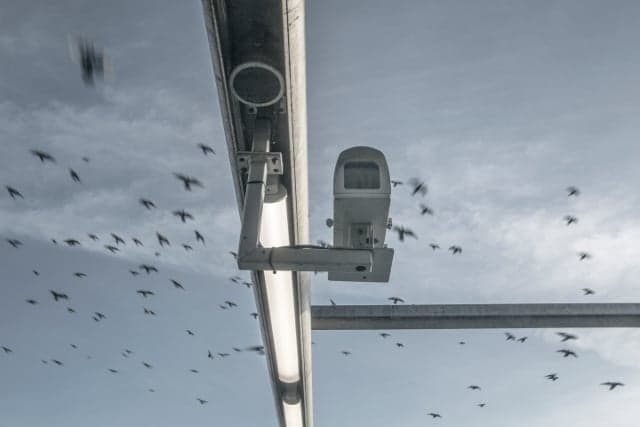Let police use CCTV without a permit: Sweden

Police should be able to use CCTV without having to apply for a licence, the Swedish government has said, ahead of the presentation of a new inquiry on camera surveillance.
Prime Minister Stefan Löfven made the announcement during a parliamentary debate on Wednesday, and Justice Minister Morgan Johansson echoed his words to the media later. It came ahead of the presentation of a new report, which is not expected to touch on the measure.
“It will be easier with camera surveillance. When it comes to the question of the police being obligated to get permission the inquiry had not been asked to answer that,” he told the TT newswire.
READ ALSO: Will CCTV help curb crime in Stockholm suburbs?
While CCTV is common in some European countries, Sweden has generally been restrictive, but has increased its use of cameras in the past few years. Five years ago there were around ten permanent cameras installed in the country, compared to around 120 today, according to TT.
Many new cameras have been set up in vulnerable suburbs such as Rinkeby and Tensta.
“There is an incredible need for cameras. Our crime curve is not positive, rather the opposite, and then cameras are an important complement that makes our work a lot easier,” Joakim Söderström, in charge of the national police's camera surveillance in public, told TT.
Today's rules give police permission to install temporary cameras, but only for a period of one month. For longer periods a decision is required from the county administrative board. Instead, politicians said, police should only have to report the installation of cameras to the county authorities.
Comments
See Also
Prime Minister Stefan Löfven made the announcement during a parliamentary debate on Wednesday, and Justice Minister Morgan Johansson echoed his words to the media later. It came ahead of the presentation of a new report, which is not expected to touch on the measure.
“It will be easier with camera surveillance. When it comes to the question of the police being obligated to get permission the inquiry had not been asked to answer that,” he told the TT newswire.
READ ALSO: Will CCTV help curb crime in Stockholm suburbs?
While CCTV is common in some European countries, Sweden has generally been restrictive, but has increased its use of cameras in the past few years. Five years ago there were around ten permanent cameras installed in the country, compared to around 120 today, according to TT.
Many new cameras have been set up in vulnerable suburbs such as Rinkeby and Tensta.
“There is an incredible need for cameras. Our crime curve is not positive, rather the opposite, and then cameras are an important complement that makes our work a lot easier,” Joakim Söderström, in charge of the national police's camera surveillance in public, told TT.
Today's rules give police permission to install temporary cameras, but only for a period of one month. For longer periods a decision is required from the county administrative board. Instead, politicians said, police should only have to report the installation of cameras to the county authorities.
Join the conversation in our comments section below. Share your own views and experience and if you have a question or suggestion for our journalists then email us at [email protected].
Please keep comments civil, constructive and on topic – and make sure to read our terms of use before getting involved.
Please log in here to leave a comment.